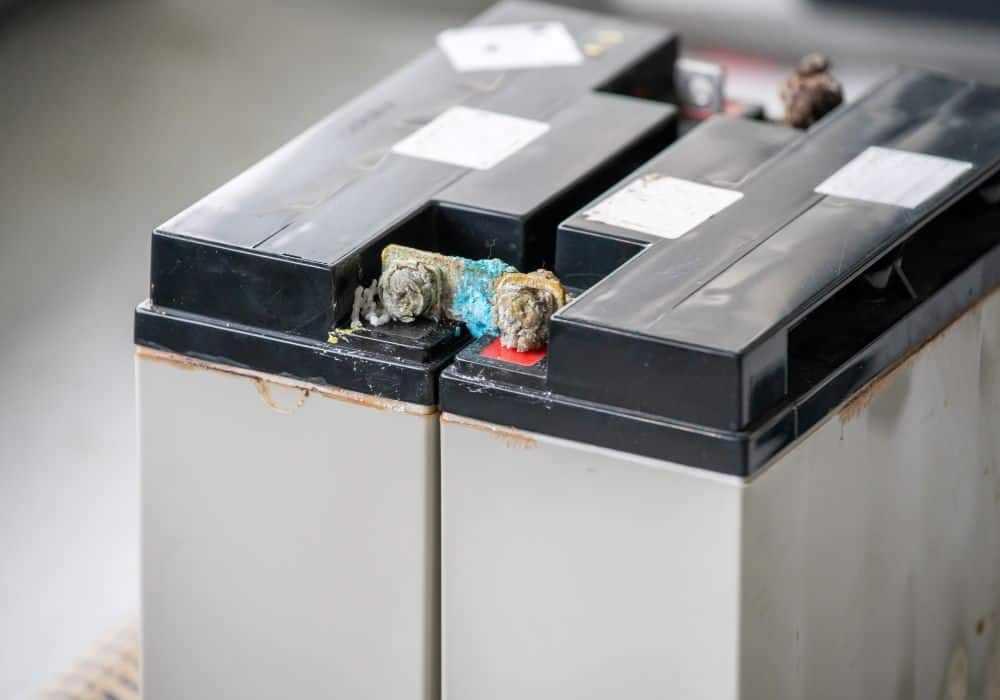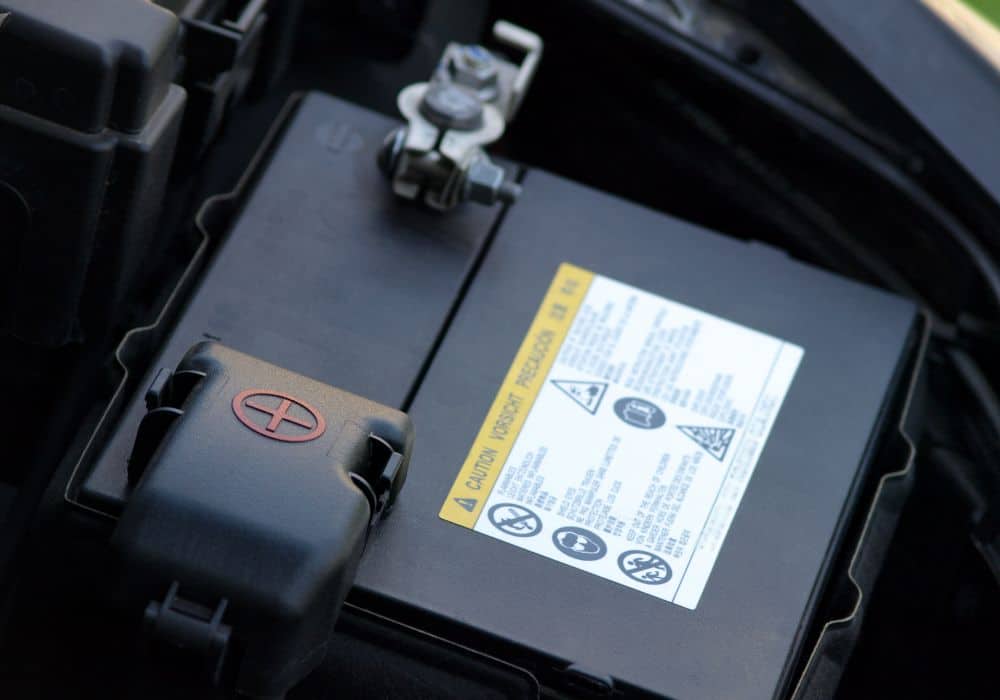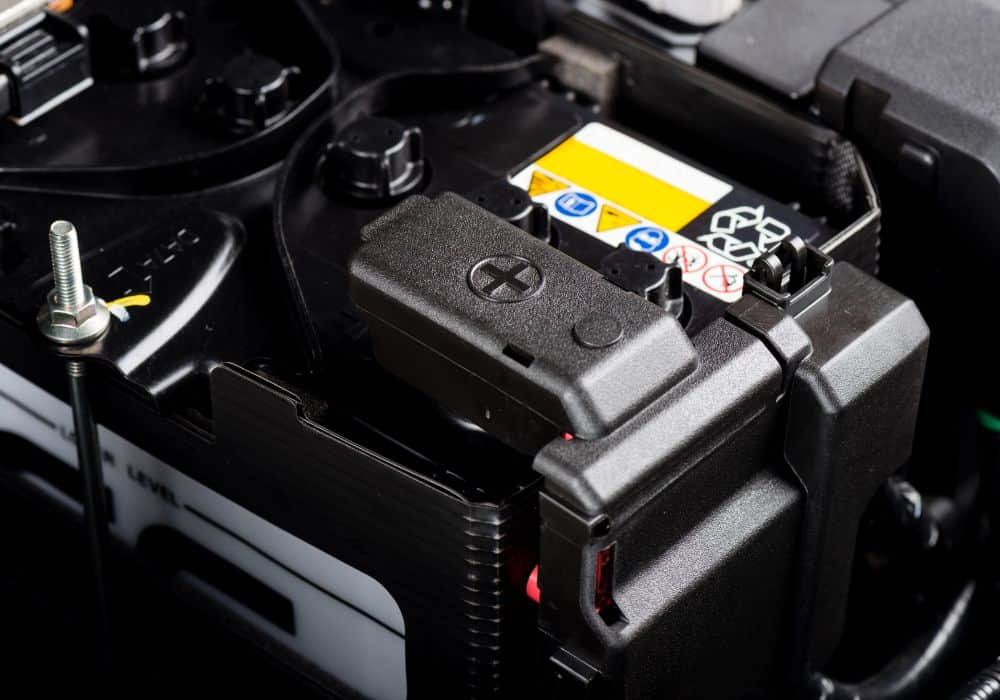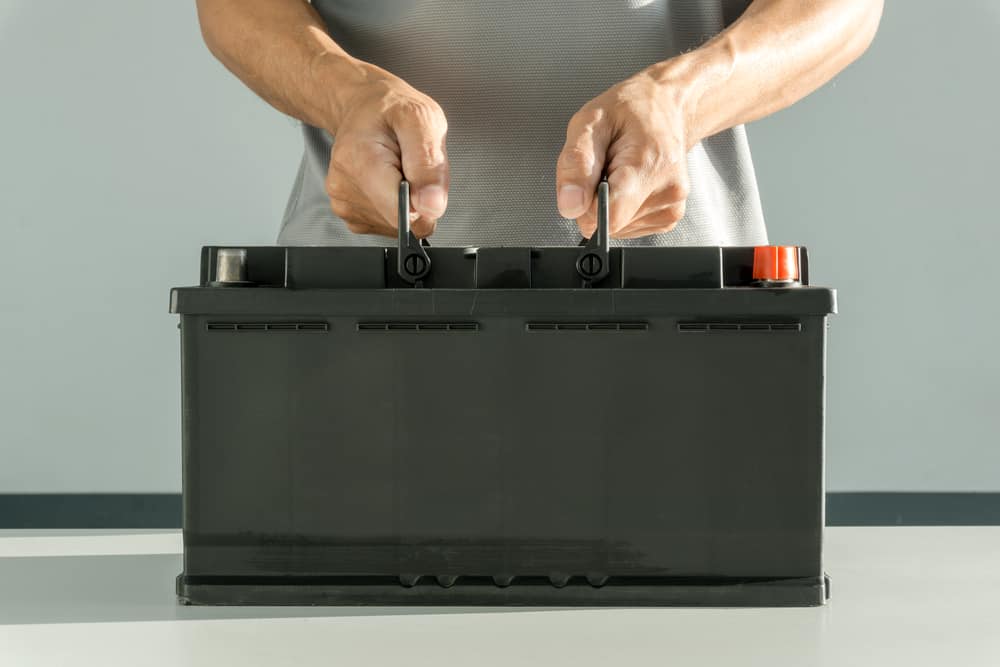You have probably never thought about the fluids flowing through different parts. More pointedly, many of us do not think about car batteries until we have car trouble. That may be the only time we understand that car batteries run on specific fluids that can deplete. So, what kind of acid is in a car battery?
A car battery runs on sulfuric acid, a strong chemical used in various industrial and mechanical applications. The acid produces the electric current that your car engine needs to start and run. But there are steps to how the acid powers the car, and this article explains how it helps the engine run.
Table of Contents
How Sulfuric Acid Works in a Car Battery
A typical car battery is a lead-acid type, and all lead-acid batteries run on sulfuric acid. It is a corrosive and dangerous acid that you must handle with care if you want to use it. Sulfuric acid can burn the skin and cause extensive injuries or blindness if it comes in contact with your skin, eyes, or other body parts.
The primary reason manufacturers favor sulfuric acid is that it produces a high electrical current. A battery has lead in it, and when the acid comes in contact with the lead, the result is lead sulfate. Through various chemical reactions, the lead sulfate converts back to sulfuric acid and lead.
The acid is also responsible for producing the electrolyte, a liquid in which the cells of a battery are submerged. Electrolytes comprise water and sulfuric acid, creating the right environment for electrical currents in a battery.
Why Is Sulfuric Acid the Preferred Choice for a Car Battery?

There are several reasons car batteries use sulfuric acid instead of other types. It does not mean that there are no other compatible acids for a car battery. However, sulfuric acid usually performs better for these reasons.
1. Strong Electrolyte
Sulfuric acid is a strong electrolyte, which is a primary reason for its use in a car battery. As explained, an electrolyte is a liquid comprising water and sulfuric acid, which also means it conducts electricity.
Without the right electrical current, a car battery cannot produce the heat the engine needs to run. In other words, sulfuric acid produces the chemical reaction needed to produce power for your car to run.
2. Corrosive
Another key reason sulfuric acid is the preferred choice for car batteries is that it is highly corrosive. That means it is strong enough to wear down obstructions and objects that should not be there.
Its highly corrosive nature makes it easy to break down the lead plates that may be in the battery. Consequently, the battery can function more efficiently when there are no foreign bodies to impede movement or slow the chemical reactions necessary for the battery’s functionality.
3. Dense
The density of any material shows how much it can store or withstand. The same applies to sulfuric acid in car batteries; the acid can store a lot of chemical energy needed for the engine to run. Low-density materials cannot store enough energy to power any machine or device.
However, the density of sulfuric acid is high, increasing its capacity to produce power for the car. And the more power is available, the longer the battery and engine can run.
4. Stable
The stability of the acid is crucial because of the chemical processes the system undergoes each time the battery needs to run. Sulfuric acid is highly stable, which means it does not quickly break down.
It provides the right environment for the chemicals to withstand the pressure and high temperature required for normal use. That way, there is no adverse reaction or explosion due to a lack of stability.
5. Affordable
The cost of sulfuric acid is another factor that makes it preferred above other battery acid choices. It is more accessible, making it the most economical choice for battery acid.
Adding New Battery Acid to an Old Battery

Is it possible to add new sulfuric acid to an old battery to get it working again? Sometimes, it may be possible to add new battery acid to an old battery. However, note that the process of adding acid is delicate and detailed.
Additionally, battery fluid is highly corrosive and may burn your skin through exposure without the right protective gear. Therefore, it may help if you allow a specialist to advise or add the acid instead of doing it yourself.
You must know the specific measurements and ratios suitable for your car battery. Also, note that there are different brands and types of batteries, which may determine the acid ratio for that battery.
Using an incorrect measurement or ratio can damage the battery beyond repair. Nevertheless, getting the measurements and ratios right can make the battery function as a new one and last longer. Ensure you recharge it for several hours after adding the acid before using it for the best results.
Choose the Right Ratio and Concentration

Remember that sulfuric acid works best in lead acid batteries. If you are buying acid for your car battery, ensure it is lead acid type. Otherwise, you may want to buy another battery acid type. Also, ensure you have the right concentration for the battery.
Typically, the concentration of sulfuric acid is between 29% and 36%, and a specific percentage of water. The acid’s density must be about 1.25 kilograms per liter, and the pH level must be about 0.8.
Additionally, you must know the specific amount your battery type requires. Vendors sell them in liter bottles for easy measurement. Therefore, determine how much the battery needs from the label and purchase accordingly.
Conclusion
A car battery uses sulfuric acid mixed in water as an electrolyte to trigger a chemical reaction. When you charge the battery, the acid reacts with the lead plates inside the battery to produce the power needed to run the engine.
The reaction produces lead sulfate for power production, but it converts back to sulfuric acid and lead when the battery is discharging. Avoid handling battery acid yourself, especially when it is straight from the battery. It is highly corrosive and can cause extensive injuries if wrongly handled. Let a professional add or remove battery acid when necessary.
